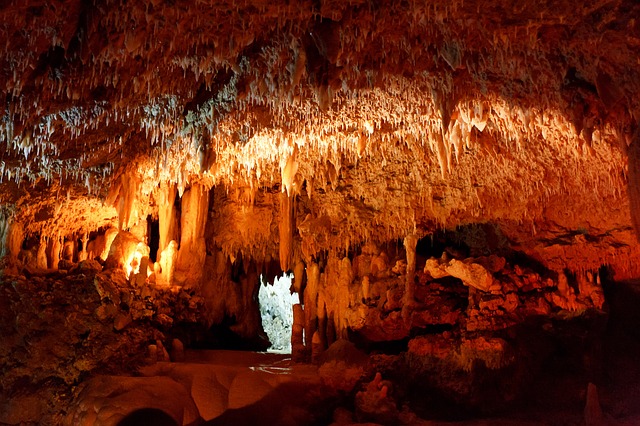
What is it?
Caving (also known as potholing) is the practice of adventuring into caves to explore what's inside! Not to be confused with the scientific study of caves called "speleology", caving is wholly recreational in purpose and comes from the desire to investigate that which is hidden from sight.
What does it involve?
The general practice of caving can vary from light exploration in big, easily navigated cave systems to more extreme aspects such as cave diving. Some caving needs a lot of safety equipment as it can involve navigating fairly treacherous areas and steep and narrow inclines, but the general purpose of caving is exploration and fun.
Why do it and what are the benefits?
Caving will be greatly educational in understanding the formation and history of the earth and the environment, and learning about the chemicals and reactions involved in formations such as stalagmites and stalactites can be fascinating. The extensive and slow-forming history of caves will increase a students respect for nature and its immense power over time, and can incite a sense of adventure and desire for new discoveries and things to learn.
What equipment do we need?
In general, you'll be with an activity provider when venturing into a cave, so it's unlikely you will need to supply any equipment! If needed, the organisers should supply safety apparatus, but check ahead beforehand for advice and to see if you need to advise the students on how to dress.
Who is it suitable for?
As the levels of caving can be adjusted for ages and abilities, it should be suitable for everyone. Providers will know what sort of caves are suitable for different groups, so as long as you consult with them it should be a good fir for everyone.
Costs?
The type of caving experience you decide upon will alter the costs of your trip greatly - a simple tour of an open cave system will cost a lot less than guidance than a trickier and more specialist cave experience.
Issues/Things to think about? (unsuitable for age groups, medical conditions etc)
Younger children should be well supervised in cave systems and you should be confident that they can obey all safety instructions.
How do we include?
Some of the more popular and open cave systems will be set up for disabled access, but the nature of caving means that they are generally hard to reach! Check with the provider if your group has someone with a disability that you are concerned about to get some advice on what would be suitable for them.
Doing it abroad?
Some of the most impressive cave formations can be found abroad - it would be worth a visit for the spectacle alone!
Main website:
http://www.trycaving.org.uk has (link is external) some great general information, but always check individual provider websites for their own exact details.





